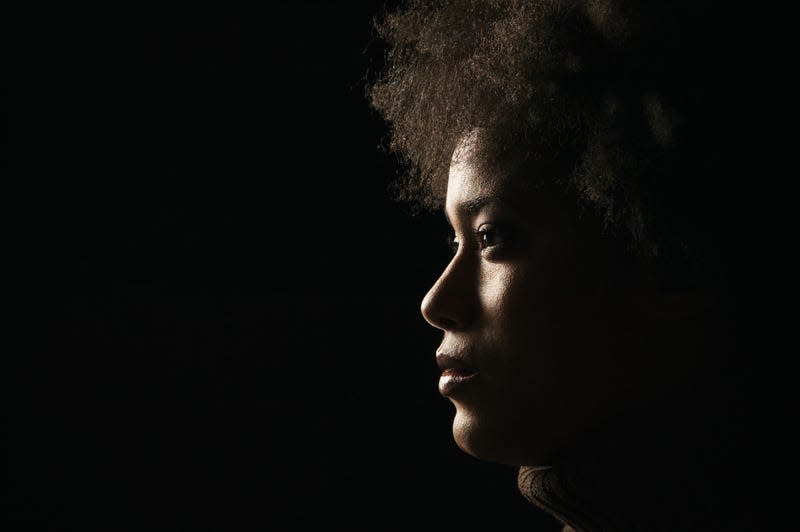She Tried to Get Help. Now She's Facing Decades in Prison (Part 5)

This story was originally published in Mother Jones Magazine.
Kerry King awoke before dawn on the first day of her trial, on Halloween in 2016. “Inside I was like an earthquake” of nerves, she recalls. A guard handed her a plum-colored dress that her attorney had sent for her to wear to court. Nobody had asked for her size, and it was far too small, the fabric clinging tightly to her hips and thighs. “I felt immodest, like I was stuffed into it,” she says. “Like, how would that look to the jury? I was so upset about that dress.”
Read more
When she arrived at the Tulsa County courthouse in the plum dress, King faced prosecutor Sarah McAmis, who was seeking a decades-long sentence. McAmis had told Tulsa World that it disturbed her when mothers entered romantic relationships with men they didn’t know well and then chose not to intervene against abuse after warning signs. “If you bring a child into this world,” she said, “you must do everything necessary to protect the child.” She said she believed child murder victims “are watching from heaven and…know we are able to get justice for them.” And previously she had employed an extreme tactic to win in another trial, punching and kicking a doll in front of the jury to demonstrate the injuries to a child, even though there was no evidence the child had been kicked in real life.
Her boss, Tulsa District Attorney Steve Kunzweiler, told the New Yorker in 2018 that a prosecutor’s job was to “teach people the morals they either never learned or they somehow forgot.” His approach to criminal defendants, he added, was similar to the way he disciplined his daughters: “There are times when your kids need a lecture, times when they need a grounding, and times when they need a spanking.”
McAmis began her opening statement to the three men and nine women of the jury, all but one of whom appeared white, by painting King as complicit: “[W]hen [Purdy] came back with the belt, this defendant held her daughter down.” McAmis soon called Kristi Simpson, a child welfare investigator, to the stand, and asked whether King should have done more after discovering the bruises on Lilah in the bathtub. King had stayed home from work afterward to watch her, but “it was not enough,” Simpson replied. At the hospital after the final attack, Lilah could not stay calm while she received a CT scan or an MRI. “We were trying to explain it to her,” Simpson recalled of the procedure. “And she was crying and saying, ‘Please don’t. I’ll be good. I’ll be good. I’m sorry.’”
“Myself and the medical professionals, we teared up,” Simpson added. “We had not seen anything like this.”
At a table beside her attorney, King cringed. The prosecutor’s questions, she recalled, felt “like a battering ram.” McAmis emphasized to the jury that King did not call 911 to save Lilah. And it was true, she never did. But King had tried to get help.
As King would later share in court, she had asked Purdy to shower with her when he emerged from Lilah’s room around 4 a.m. After the shower, Purdy briefly left King’s phone within her reach. When he walked away, she texted, “Help me,” to her mom, then deleted the message from the phone so he wouldn’t see it.
Moments later, the phone rang. When Purdy answered, Owens, King’s mother, who’d been roused from a deep sleep by the text, was on the other side, asking for answers. Purdy hung up and then pushed King up against the linen cabinet. What did you say to your mom? he asked before hitting her in the face. Purdy demanded that she call Owens back to say they were all just fine. So she picked up the phone and dialed.
Everything is just fine, she told her mother, trying to hide her terror as he sat on the couch opposite her, holding Lilah’s mouth closed so she wouldn’t cry out.
Next: In Part 6, King takes the stand. It does not go well.

